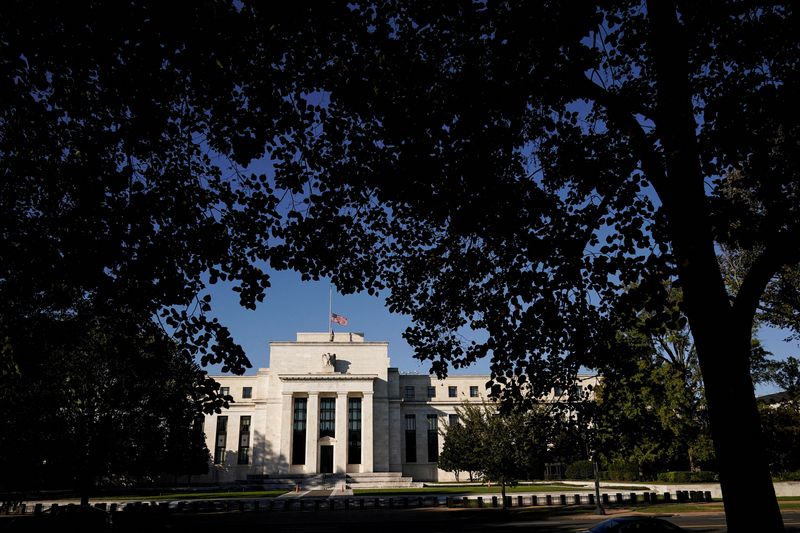Between 2020 and 2023, the U.S. Federal Reserve Board faced allegations of sexual harassment, receiving 11 complaints against individuals and consequently disciplining nine employees. This information, obtained by Reuters through a Freedom of Information Act request, highlighted the Board’s actions, which included the firing of four staff members for sexual harassment and other work-related concerns. While the Board issued “last chance” warnings to another four employees, the organization also reported three other complaints during this time frame, leading to mixed outcomes. In two instances, no action was taken: one case lacked sufficient evidence, and another involved a non-employee. The nature of disciplinary recommendations remained scant, with one employee reportedly receiving counseling for unprofessional communication. Overall, the Board emphasizes a strict zero-tolerance policy against sexual harassment, reaffirming that such behavior is prohibited even if it does not violate the law.
While federal agencies are mandated to disclose equal employment opportunity (EEO) harassment complaints, the Fed’s lack of formal complaints starkly contrasts with the experiences of other federal entities. Notably, the Fed reported no EEO complaints for sexual harassment during the specified period, placing it in a favorable light compared to other financial regulators, among whom only three others reported no EEO complaints. This lack of complaints at the Fed raises questions, especially amid heightened scrutiny of sexual harassment across federal agencies, particularly after several investigations revealed systemic misconduct in institutions like the Federal Deposit Insurance Corporation (FDIC). Such investigations unveiled alarming accounts from over 500 individuals describing a toxic environment fostering sexual misconduct, racism, and bullying.
The disconnect between reported EEO complaints and actual instances of sexual harassment suggests that the EEO data does not comprehensively reflect the dynamics of workplace misconduct. Employment lawyers argue that federal employees face various hurdles that can lead to disciplinary measures without formal EEO complaints. Before lodging such complaints, employees must first engage in mandatory counseling, where an EEO counselor may attempt to resolve the issue informally. This preliminary process does not necessarily lend itself to the initiation of formal complaints and highlights a bureaucratic layer that could hinder the reporting of misconduct. With this context, it becomes clear that assessable disciplinary actions can occur without formal allegations being made.
Reputable employment lawyers assert that the EEO complaint system primarily serves the purpose of facilitating redress for employees rather than directly sanctioning perpetrators. This means that instances of harassment can go unreported or inadequately reflected in aggregate data. Ariel Solomon, a lawyer representing federal workers, stated that the absence of reported complaints does not equate to the absence of sexual harassment incidents within agencies. Certain severe cases have warranted disciplinary actions that reflect the seriousness of the allegations, underscoring the need for a more robust understanding of workplace dynamics in federal organizations.
The fallout from ongoing investigations into how sexual harassment complaints are handled within federal agencies, such as the FDIC, has sparked renewed focus at the Federal Reserve. Following reports highlighting the scale of misconduct, Fed leadership has emphasized that similar conduct will not be tolerated. Communications from higher-ups within the Federal Reserve, including admonishments against any form of sexual harassment or retaliation, signal a heightened vigilance against such behaviors in their institution. High-ranking officials, including Director of Supervision and Regulation Michael Gibson and senior associate director Marta Chaffee, have sent emails to staff outlining their commitment to a respectful and professional environment, emphasizing the Board’s stance against unacceptable conduct.
This increasing scrutiny and calls for accountability within federal institutions such as the Fed come at a time when public expectations for transparency and workplace integrity are evolving. With the revelations surrounding the FDIC highlighting the need for reform in how agencies manage and report on harassment, the Federal Reserve’s zero-tolerance policy and its recent disclosures lead to a critical conversation regarding broader systemic changes. The complexities of reporting and addressing harassment underscore an urgent need for federal agencies to revisit their procedures and ensure the protection and fair treatment of all employees. As employees increasingly feel empowered to come forward with their complaints, it will be essential for the Federal Reserve and similar agencies to adapt and strengthen their internal policies and accountability measures against harassment to foster a safe and respectful work environment.

